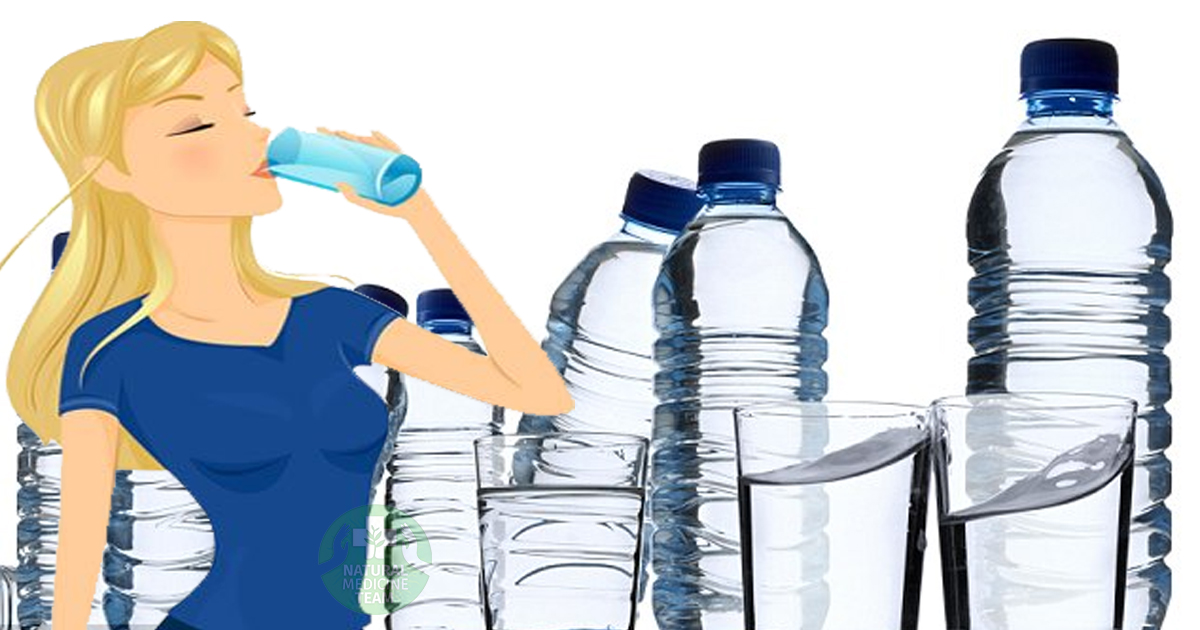Dehydration is the result of drinking less water than your body needs for it to function optimally. Because of our modern ways of life and the many drinks that we are offered to consume, we often forget that what our body really needs is exactly water.
We ignore that our body is, in fact, more than 60% made up of water and we need to follow a healthy daily intake of it in order to evade many health discomforts and to keep our body in a good shape.

The recommended amount of water that we should take per day varies according to our mass and health condition but generally is between 6 and 9 glasses.
We can freely say that there is almost no process in the body on which water doesn’t have significant influence.
- It balances body fluids,
- It regulates the body temperature,
- It lubricates eyes and joints,
- It protects the tissue, the spinal cords, and the joints,
- It aids digestion,
- It keeps skin healthy,
- It is important for detoxication,
- It controls the blood pressure, etc.
Consequently, it is of utter importance to keep your body hydrated and drink a lot of water, especially in situations when your body loses excessive amounts of fluids such as in cases of diarrhea, vomiting, excessive sweating or high ambient temperatures. This will keep the electrolytes in your body balanced and your body will function properly.
-
Table of Contents
Here are some dehydration symptoms:
Headaches and Lightheadedness
When your body lacks water, the amount of fluid surrounding your brain which protects it from bumps and movements is decreased. Also because water has a direct influence on the blood pressure, it causes lack of oxygen being brought to the brain. Often these are the reasons for having a headache, so next time drink a glass of water before running to take the headache medications.
Brain Fog or Poor Concentration
A 2013 study published in Clinical Autonomic Research has proved that dehydration can cause symptoms of brain fog, forgetfulness and difficulty to focus, think and communicate.
The low blood pressure also makes people feel fatigued and lethargic.
Bad Breath and Dry Mouth
When the body lacks water, it starts saving it for more important processes. One example for this is that it reduces the amount of saliva being produced. Because saliva has an antibacterial effect, this leads to more bacteria living in your mouth and causes your breath to smell.
Reduced Urination and Change in Color
The healthy and hydrated person will use the restroom 4 to 7 times per day. If this is not the case with you, you definitely check if you are drinking enough fluids. Urination is very important for the health because that is how we get rid of the toxins in our body. Also if your urine is too dark or has a strong smell it is a sign that you need to take a few more glasses of water or tea per day.
Accelerated Heartbeat
Dehydration causes a decrease in plasma volume making the blood more viscous. This affects blood circulation and increases your heart rate. A 2014 study published in the Journal of Strength & Conditioning Research says that dehydration negatively impacts the performance of the heart.
Researchers found that the heart rate changes an average of three beats per minute for every 1% change in body weight resulting from dehydration.
In the future, listen to your body, and pick that glass of water! Bottoms up!
